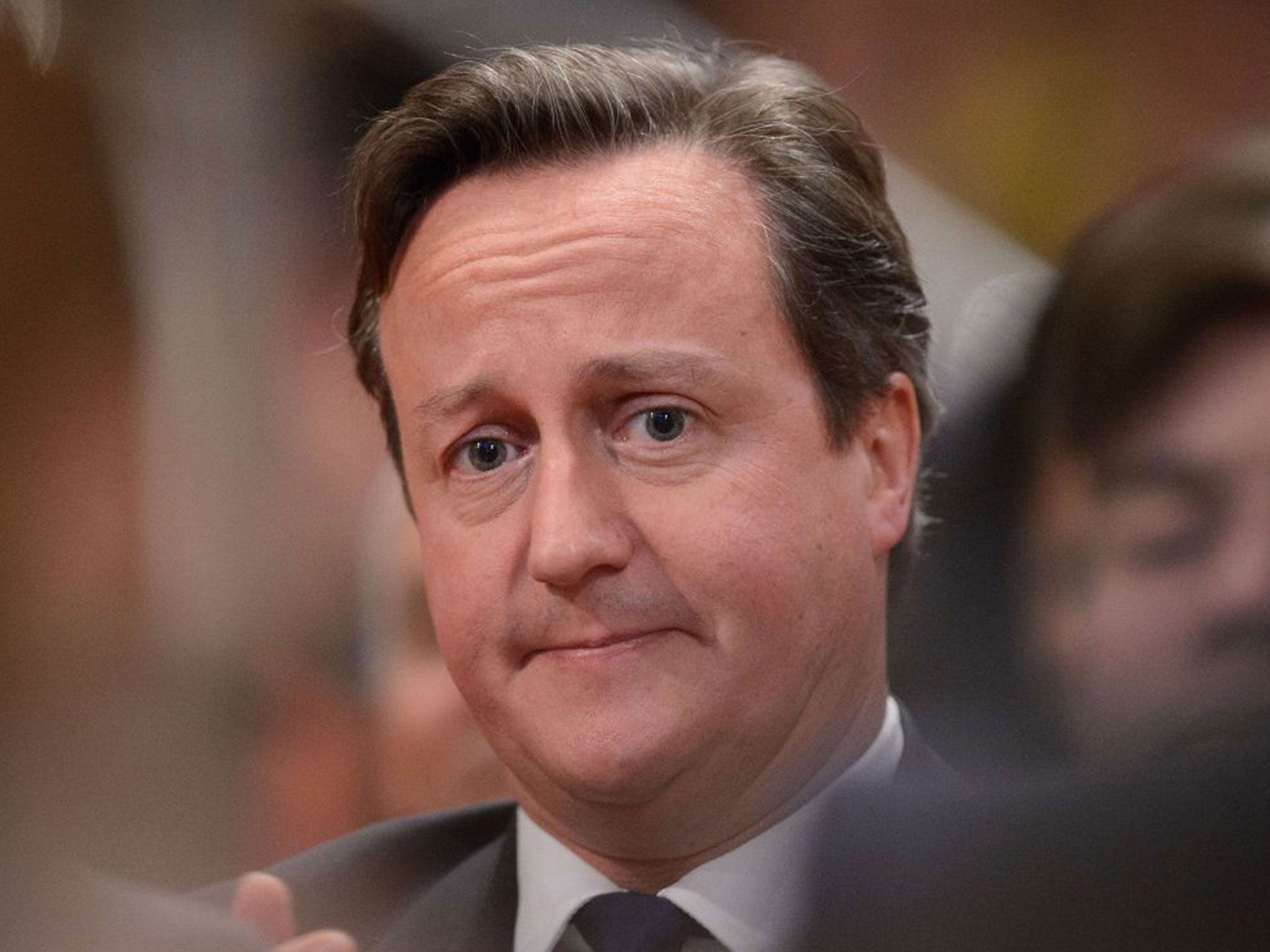David Cameron wins huge lead in public trust over decisions about Isis
45% trust PM on tackling the jihadist group, but only 28% trust Ed Miliband

Your support helps us to tell the story
From reproductive rights to climate change to Big Tech, The Independent is on the ground when the story is developing. Whether it's investigating the financials of Elon Musk's pro-Trump PAC or producing our latest documentary, 'The A Word', which shines a light on the American women fighting for reproductive rights, we know how important it is to parse out the facts from the messaging.
At such a critical moment in US history, we need reporters on the ground. Your donation allows us to keep sending journalists to speak to both sides of the story.
The Independent is trusted by Americans across the entire political spectrum. And unlike many other quality news outlets, we choose not to lock Americans out of our reporting and analysis with paywalls. We believe quality journalism should be available to everyone, paid for by those who can afford it.
Your support makes all the difference.David Cameron is trusted by many more people than Ed Miliband to take the right decisions on how to combat Isis, according to a ComRes survey for The Independent.
Some 45 per cent of the public trust the Prime Minister to make the right decisions on tackling the jihadist group, but only 28 per cent trust the Labour leader to do so.
Although Conservative ministers insist that Mr Cameron would never seek to exploit the crisis, some hope that his handling of it could underline the “choice between two prime ministers” at next May’s general election. Labour figures insist that Mr Cameron is bound to be seen by voters as more “prime ministerial” than Mr Miliband because he is already in Downing Street.
Although 49 per cent do not trust Mr Cameron to make the right judgements on Isis, a higher proportion – 63 per cent - do not trust Mr Miliband on the issue. The Prime Minister is more trusted than the Opposition Leader among every age, gender and social grade group and in every region of the country.
Four in 10 (41 per cent) of Labour voters trust Mr Cameron to make the right decisions on Isis. In contrast, only 18 per cent of Conservative supporters trust Mr Miliband to do so.
Some 48 per cent of the public believe that taking part in such action in Iraq and Syria will make Britain safer in the long term, while 42 per cent disagree. Men (53 per cent) are more likely to agree that such action will make the UK safer than women (41 per cent). The apparent support for action will be welcomed by Mr Cameron, who wants to extend UK air strikes from Iraq to Syria but has not yet won Mr Miliband’s backing for such a move.
Only 38 per cent of the public agree with the statement that the situation in Iraq and Syria is “none of our business and we should stay out of it,” while 56 per cent disagree.
Tom Mludzinski, head of political polling at ComRes, said: “The capture and beheading of Western hostages by Isis appears to have brought the threat closer to home for many in Britain. As the public see an increased threat to Britain so support for military action is likely to increase and David Cameron’s position as a statesman strengthen.”
According to ComRes, Labour enjoys a six-point lead. The party is on 35 per cent (unchanged since last month), the Conservatives on 29 per cent (up one point), Ukip on 15 per cent (down two points), the Liberal Democrats on 10 per cent (up one point) and others on 11 per cent (unchanged). If these figures were repeated at a general election, Labour would win a majority of 74.
One in seven (14 per cent) of people who voted Conservative in 2010 say they would now back Ukip, highlighting the huge task facing Mr Cameron as he tries to win back these lost supporters.
* ComRes interviewed 1,007 GB adults by telephone between September 26-28.
Join our commenting forum
Join thought-provoking conversations, follow other Independent readers and see their replies
Comments